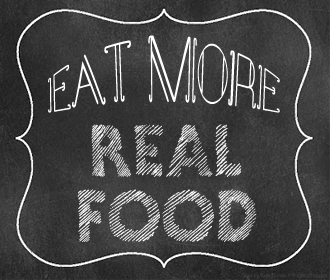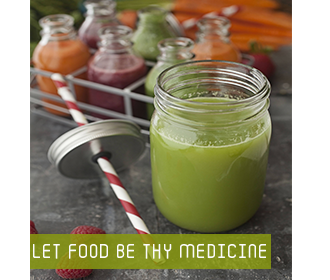Did you drink enough water as a teenager? Most teens don’t even have ‘water’ in their vocabulary, and some adults are even worse, especially once they discover coffee. However, it is crucial to realize the importance of hydration both for athletic performance and general health on a daily basis. This article we are sharing how to get your entire family drinking more water by discussing six major myths around drinking water.
1. Myth #1: Water tastes bad.
Water ‘tastes’ bad because you’re used to having your palette stimulated by sweet, salty, or even bitter tastes when you drink fluids. As a rule of thumb, the stronger a drink tastes (whether it’s pop or a mocha Frappuccino) the worse it likely is for you in terms of hydration. But what do you do if you don’t like water?
- Add half a lemon, some berries, or a splash of fresh pressed juice to your water (just a few tablespoons!), just enough so that you can tolerate the taste. Herbal teas also come in plenty of delicious flavors and while they are NOT to be a substitute for water, they won’t further dehydrate you (stay away from black teas though, as they act as diuretics and will make you very thirsty).
- Try alkalized filtered water. In all municipal areas, chlorine is added to water and while its necessary, it detracts from the taste and is also not supportive of our health. Also many areas have additives like fluoride are put into water, some people can find the taste of their water is compromised. Filtering via a system that allows for the natural living state of water to be achieved will make the water taste great and become much healthier (not to mention more pure).
2. I’m not thirsty, so I don’t need to drink.
There’s a part of your brain called the hypothalamus that controls things like breathing rate, heart rate, etc. as well as the drive for thirst. In children and the elderly, the hypothalamus doesn’t respond as well to thirst signals as they do in adults. It’s also important to distinguish between the two types of dehydration and what you’ll feel as a result:
- Volumetric thirst is when you lose blood volume through vomiting, diarrhea, or basically anything that happens when you’re sick with the flu. The kidneys are sent signals to hold on to water and salt, increasing your blood pressure. This also makes you feel more sick (as well as thirsty).
- Osmometric thirst: this is way more common. The salt content between cells increases, which draws water out of the cells (making them shrink). Signals are sent to the hypothalamus to release ADH (antidiuretic hormone) which causes your kidneys to again hold on to water. However, over time, chronic, mild dehydration can cause the hypothalamus to respond less and less to thirst, which is why many of us end up not as thirsty-despite needing more water!
The result? Poor concentration, headaches, decreased athletic performance, sunken eyes, inability to produce tears, feeling lethargic, and problems clearing up acne breakouts.
Also, once you feel thirst, you have already reached a significant level of dehydration in your body! Drinking water throughout the day, will ensure you are always hydrated and feeling great.
3. But I didn’t work out today-I shouldn’t be losing that much water!
Nice try. You still lose water from talking, breathing, and temperature changes. Heat makes us sweat, but cold air makes us lose more water through breathing because your body uses water to warm the incoming air. You can also lose water from going to the bathroom and living at a high altitude.
4. I had a few sips of water after an athletic event and don’t feel thirsty anymore. Why?
Pure water shifts the osmotic balance (aka salt-to-water-ratio) back in the favor of water, which is mostly what you lost during that event. However, this is a bit deceiving because during your athletic event you also lost some salt. To make this more clear, let’s use the example of a liter of water with an arbitrary 10g of salt, where the ratio is 10g: 1000 mL (or 1g salt for every 100 mL water). If we reduce the amount of water to 800 mL, and the salt to 9g, we’re going to need more water to raise it up to 1000 mL again. But wait! If we just replace 100 mL of water, this happens:
9g of salt to 900 mL of water is the equivalent ratio of 1g of salt to 100 mL of water, which is equal to the same ratio we started with.
This is effectively ‘tricking’ your body into thinking that it’s properly hydrated for a while. That’s why it’s especially important to rehydrate with both electrolytes and water.
5. I heard I needed 6-8 glasses of water per day. Is that true?
The general rule of thumb is that you need to drink about half of your body weight in oz of water per day. This varies from person to person, and depends on many different health factors. An easier way of testing your hydration is to check the color of your urine (really!); it should be clear.
6. What about sports drinks?
Many teens drink sports drinks because they assume they need the extra electrolytes, but you only really need an electrolyte drink after intense physical activity, with prolonged duration (3 or more hours). The other issue with sports drinks is that they contain a lot of sugar, artificial dyes, and brominated vegetable oils (which has controversial information surrounding it. If you want a broad explanation on it, read here).
However, we weren’t going to leave you without an idea of what to drink post-workout/sporting event. That’s why we’ve posted our great recipe for an electrolyte drink that tastes great and has everything you need in it, and is very quick & inexpensive to make!
One additional alternative to consider as an electrolyte drink, for those who don’t want to make their own, it to try coconut water. Be sure to get a brand that is pure, with no added ingredients, and not from concentrate. Just straight coconut water (be sure to read the label), is available in most stores now and is a quick easy solution for those in need of a true, natural electrolyte drink while away.
For more information of water filtration and the best options to suit your needs, send us a note to info@bundlesofenergy.com









